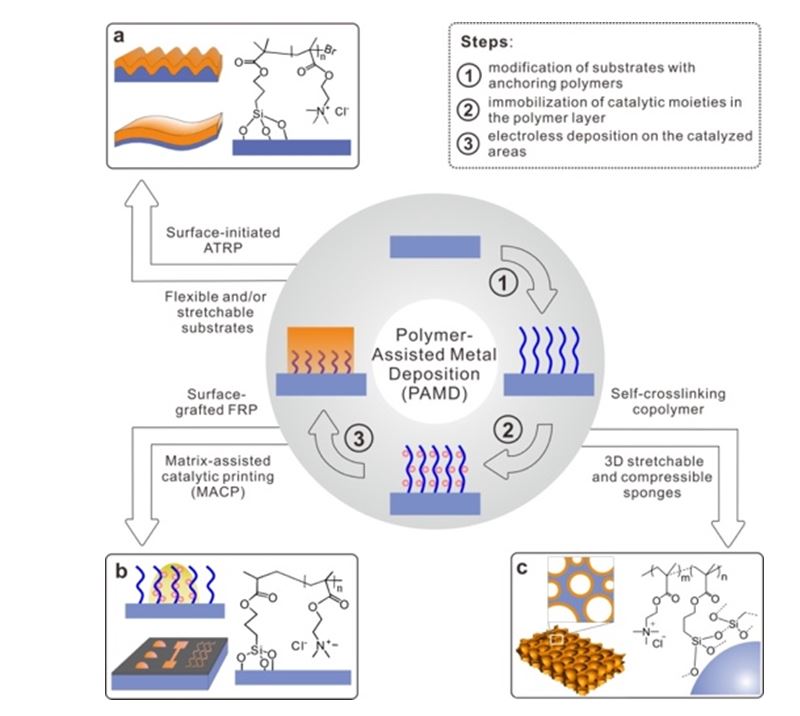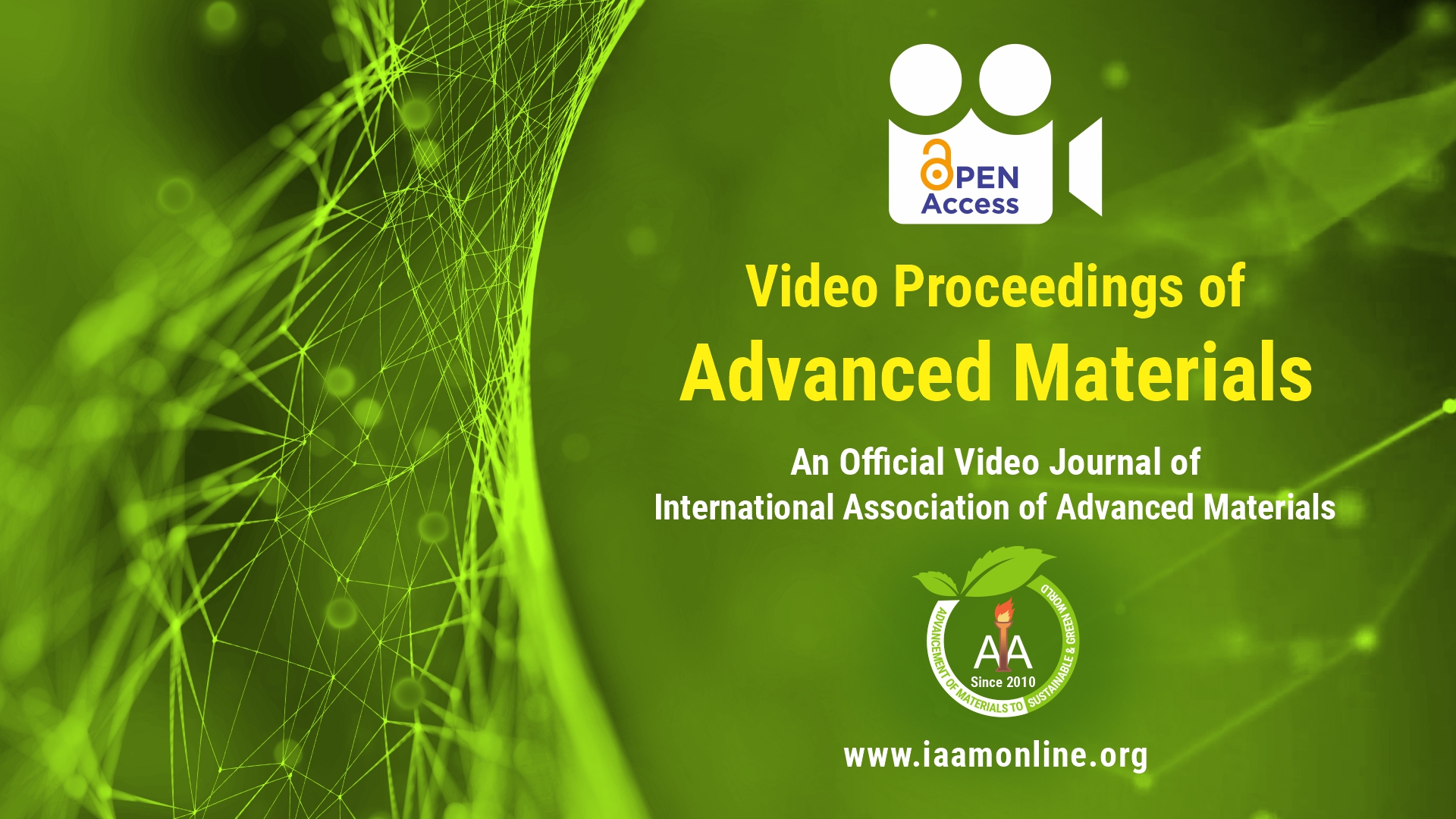Video Article Open Access
Polymer - Assisted Metal Deposition for Soft Electronics
Zijian Zheng1,2
1Research Centre for Smart Wearable Technology, Institute of Textiles and Clothing, The Hong Kong Polytechnic University, Hung Hom, Kowloon, Hong Kong SAR, China
2Research Institute for Smart Energy, The Hong Kong Polytechnic University, Hung Hom, Kowloon, Hong Kong SAR, China
Vid. Proc. Adv. Mater., Volume 2, Article ID 2021-02130 (2021)
DOI: 10.5185/vpoam.2021.02130
Publication Date (Web): 30 Mar 2021
Copyright © IAAM
Graphical Abstract

Abstract
Metal conductors are indispensable element for most future soft electronic devices. One critical challenge in this field is how to fabricate highly conductive, adhesive, smooth, and soft metal conductors at low temperature under ambient conditions, and preferably in a roll-to-roll manner. Conventional metal nanoparticle inks fall short to satisfy these requirements because of their relatively high processing temperature, rough surface, and poor adhesion, especially for easily oxidized metals such as Cu. Our laboratory recently develops Polymer-Assisted Metal Deposition (PAMD) to address this issue. PAMD allows ambient fabrication of flexible, foldable, stretchable, compressible, and wearable metal (especially Cu) conductors with very high conductivity. This talk will briefly discuss the fundamental chemistry of PAMD, the printing with PAMD, and their applications in several soft electronic devices.
Keywords
Soft electronics; electrode; interface; polymer-assisted metal deposition.
References
- Y. Yu, C. Yan, Z. J. Zheng*, Adv. Mater., 2014, 26, 5508-5516.
- P. Li, Y. Zhang, Z. J. Zheng*, Adv. Mater., 2019, 31,37, 1902987.
- K. Li, H. Zhen*, L. Niu, X. Fang, Y. Zhang, R. Guo, Y. Yu, F. Yan, H. Li, Z. J. Zheng*, Adv. Mater., 2014, 26, 7271-7278.
- R. Guo, Y. Yu, Z. Xie, X.,Y. Yang, Z. J. Zheng*, Adv. Mater., 2013, 25, 3343-3350.
- X. Wang, H. Hu, Y. Shen, X. Zhou, Z. J. Zheng*, Adv. Mater., 2011, 23, 3090-3094.
- X. Liu, H. Chang, Y. Li, W. T. S. Huck, Z. J. Zheng*, ACS Appl. Mater. Interfaces, 2010, 2, 529-535.
- L. Liu, Y. Yu, C. Yan, K. Li, Z. J. Zheng*, Nat. Commun., 2015, 6, 7260.
- Y. Yu, X. Xiao, Y. Zhang, K. Li, C. Yan, X. Wei, L. Chen, H. Zhen, H. Zhou, S. Zhang, Z. J. Zheng*, Adv. Mater., 2016, 28, 4926-4934.
- J. Chang, Q. Huang, and Z. J. Zheng*, Joule, 2020, 4, 7, 1346-1349.
- J. Chang, Z. J. Zheng*, et al., Nat. Commun., 2018, 9, 4480.
Biography
Zijian Zheng is currently Full Professor at the Institute of Textile and Clothing (ITC) and Research Institute for Smart Energy (RISE) at The Hong Kong Polytechnic University. His research interests are surface and polymer science, nanofabrication, flexible and wearable electronics, energy conversion and storage. Prof. Zheng received his B. Eng. in Chemical Engineering at Tsinghua University in 2003, and PhD in Chemistry at University of Cambridge in 2007 (Supervisor: Prof. Wilhelm T. S. Huck). In 2008, he worked as postdoctoral researcher with Prof. Chad A. Mirkin at Northwestern University in the USA. He joined ITC as Assistant Professor in 2009, and was promoted to tenured Associate Professor in 2013 and Professor in 2017. He has published ~120 papers in high-impact international scientific journals including Science, Nature Comm., Advanced Materials, Journal of the America Chemical Society, Angewandte Chemie. He also files 25+ patents and is recipient of more than 10 academic awards. He serves as Guest Editor of Advanced Materials and Small, and Editor-in-Chief of EcoMat, a flagship open-access journal in green energy and environment published by Wiley. He is elected Founding Member of The Young Academy of Sciences of Hong Kong.
Video Proceedings of Advanced Materials

Upcoming Congress



